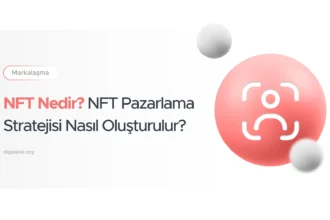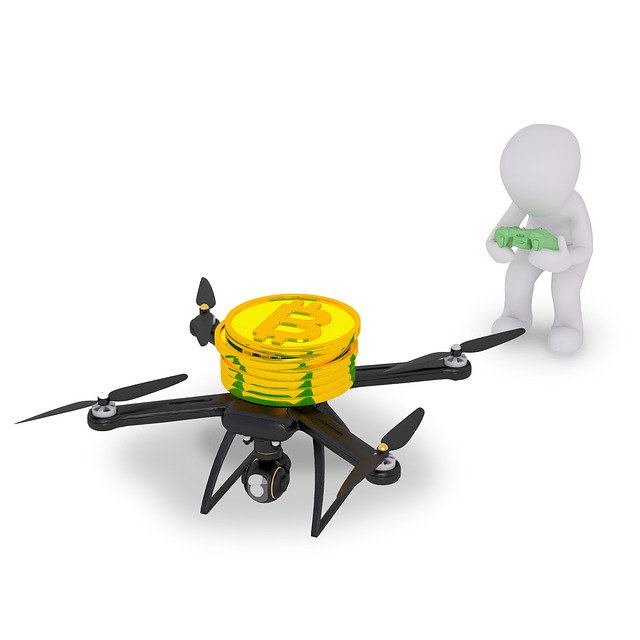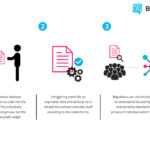“DeCentralized Reputation: Building Trust in a Trustless World”
Giriş
Decentralized Reputation System, merkezi bir otorite tarafından yönetilmeyen ve dağıtık bir yapıda çalışan bir itibar sistemidir. Bu sistemde, kullanıcıların ve hizmet sağlayıcıların itibarı, blockchain teknolojisi veya benzeri dağıtık defterler kullanılarak güvende tutulur ve takip edilir.
Bu tür bir sistemde, her bir tarafın (kullanıcılar, hizmet sağlayıcılar ve diğer taraflar) davranışları ve işlemleri, dağıtık bir veri tabanı tarafından kaydedilir ve izlenir. Bu sayede, herkesin itibarı ve güvenilirliği, merkezi bir otorite tarafından değil, aynı zamanda ve adil bir şekilde değerlendirilir.
Decentralized Reputation System’in ana avantajları şunlardır:
1. Gizlilik: Verilerin merkezi bir veri tabanında değil, dağıtık bir yapıda tutulması sayesinde, kullanıcıların kişisel bilgilerinin korunması sağlanır.
2. Şeffaflık: Herkesin itibarı ve davranışları, açık ve şeffaf bir şekilde görülebilir, bu da dolandırıcılık ve sahtecilik gibi kötü niyetli faaliyetlerin önlenmesine yardımcı olur.
3. Adil değerlendirme: Her kullanıcının ve hizmet sağlayıcının itibarı, adil ve tarafsız bir şekilde değerlendirilir, böylece herhangi bir merkezi otoritenin etkisine maruz kalınmaz.
4. Mutlak güvenilirlik: Blockchain veya benzeri teknolojilerin güvenliği sayesinde, itibarı ve güvenilirlik bilgilerininde güvenli ve immutable bir şekilde saklanır.
Sonuç olarak, Decentralized Reputation System, merkezi otoritelerin dışında, şeffaf, adil ve güvenli bir itibar yönetimine olanak tanıyan bir teknolojidir. Bu sistem, özellikle internet üzerinden yapılan işlemler ve e-ticaret gibi alanlarda, güven ve güvenilirliğin sağlanması açısından büyük önem taşımaktadır.
Decentralized Reputation Systems: The Future of Trust in Digital Spaces
Decentralized Reputation Systems: The Future of Trust in Digital Spaces
In today’s digital age, trust has become a precious commodity. As we increasingly rely on online platforms for communication, commerce, and social interaction, the need for reliable and transparent reputation systems has never been more critical. Enter decentralized reputation systems, a groundbreaking approach that promises to revolutionize the way we establish trust in digital spaces.
At its core, a decentralized reputation system is a mechanism that allows users to rate and review each other based on their interactions within a particular network or platform. Unlike traditional centralized systems, which rely on a single authority to manage and control reputation data, decentralized systems distribute this information across a network of nodes, ensuring greater security, transparency, and resilience.
One of the key advantages of decentralized reputation systems is their ability to prevent manipulation and fraud. By distributing reputation data across multiple nodes, it becomes virtually impossible for a single entity to game the system or spread false information. This inherent trustlessness is a significant step forward from centralized systems, which are often vulnerable to attacks and abuse.
Moreover, decentralized reputation systems offer a more democratic and inclusive approach to trust-building. In a decentralized network, every participant has the opportunity to contribute to the reputation of others, creating a more balanced and representative view of each user’s trustworthiness. This collaborative effort fosters a sense of community and shared responsibility, as users are encouraged to act in the best interest of the entire network.
Another compelling aspect of decentralized reputation systems is their potential to create new economic opportunities. By enabling users to establish and showcase their trustworthiness, these systems can facilitate the emergence of new business models and revenue streams. For example, users with high reputations could be eligible for preferential treatment, access to exclusive services, or even the ability to earn cryptocurrency rewards for their contributions to the network.
As we look to the future, it’s clear that decentralized reputation systems will play a crucial role in shaping the digital landscape. As more people and businesses adopt these technologies, we can expect to see a shift towards a more transparent, trustworthy, and collaborative online environment. Whether you’re a consumer looking for reliable products and services, a business seeking to build trust with your customers, or simply an individual seeking to establish your online identity, decentralized reputation systems offer a promising path forward.
In conclusion, decentralized reputation systems represent a significant leap forward in our quest for trust in digital spaces. By leveraging the power of blockchain technology and distributed networks, these systems offer a more secure, transparent, and democratic approach to reputation management. As we continue to navigate the complexities of the digital world, it’s essential that we embrace innovative solutions like decentralized reputation systems to build a future where trust is not just a commodity, but a fundamental right for all.
How Decentralized Reputation Systems Enhance Transparency and Accountability
Decentralized Reputation Systems (DRS) are innovative solutions that have gained significant attention in recent years. These systems operate on the principle of distributing trust and reputation data across a network rather than relying on a central authority. By doing so, they enhance transparency and accountability in various domains such as online marketplaces, social networks, and professional communities.
One of the key advantages of DRS is their ability to provide a more accurate and reliable assessment of individuals or entities. Traditional centralized systems often face challenges such as manipulation, censorship, and single points of failure. In contrast, DRS eliminate these issues by leveraging the power of distributed ledgers and consensus mechanisms. This ensures that reputation data is transparent, immutable, and resistant to tampering.
DRS also promote accountability by holding participants accountable for their actions. In a decentralized system, every participant has the ability to contribute to and influence the reputation of others. This creates a self-regulating environment where individuals are motivated to maintain a positive reputation to ensure long-term success within the network. Moreover, the public nature of DRS makes it easier to identify and address misconduct, fostering a culture of responsibility and trust.
The implementation of DRS can be observed in various applications. For example, in online marketplaces, DRS can help buyers and sellers establish trust by providing a transparent record of past transactions and user behavior. This enables users to make informed decisions and reduces the risk of fraud. Similarly, in professional networks, DRS can help employers and employees assess qualifications and performance based on verified data, leading to more accurate hiring decisions and improved work outcomes.
To further illustrate the benefits of DRS, consider the case of a decentralized job platform. In this scenario, job seekers and employers can utilize a DRS to rate and review each other’s performance. When a job seeker applies for a position, the employer can view their reputation score and associated reviews to gauge their suitability for the role. Similarly, the job seeker can assess the employer based on their reputation and the experiences of other employees. This transparent and accountable system encourages both parties to maintain high standards, resulting in better matches and improved job satisfaction.
In conclusion, Decentralized Reputation Systems offer a promising solution for enhancing transparency and accountability in various domains. By distributing trust and reputation data across a network, DRS overcome the limitations of centralized systems and create a more reliable and self-regulating environment. As these systems continue to evolve and gain adoption, they have the potential to revolutionize the way we assess and trust individuals and entities, leading to more trustworthy and accountable interactions across the board.
The Role of Blockchain in Decentralized Reputation Systems
Blockchain teknolojisi, son yıllarda birçok sektörde büyük değişiklikler yaşanmasına sebep olmuştur. Bu değişikliklerin en önemlilerinden biri de merkezsizleştirilmiş (decentralized) itibar sistemlerinin ortaya çıkmasıdır. Bu makalede, decentralized reputation system’in ne olduğu ve blockchain teknolojisinin bu sistemlerin rol oynadığı konularına odaklanacağız.
İtaatkar bir vatandaş olarak, toplumda iyi bir itibar sahibi olmak önemlidir. Aynı şekilde, çevrimiçi platformlarda da kullanıcıların güvenilir ve saygın bir kimlik sergilemesi önemlidir. Ancak, çevrimiçi platformlarda itibarın korunması ve yönetilmesi zor olabilir. Bu nedenle, decentralized reputation system’leri geliştirmek, kullanıcıların güvenilir ve güvenli bir çevrimiçi ortamda etkileşime girmelerini sağlamak için önemlidir.
Blockchain, bu tür merkezsizleştirilmiş itibar sistemlerinin temelini oluşturan bir teknolojidir. Blockchain, dağıtılmış bir defter gibi düşünülebilir; bu defter, tüm katılımcılar tarafından paylaşılan ve güncellenen bir veritabanıdır. Bu nedenle, blockchain teknolojisi sayesinde, itibar puanları ve kullanıcı geri bildirimleri merkezi bir otorite tarafından değil, tüm katılımcılar tarafından yönetilebilir.
Decentralized reputation system’ler, kullanıcıların birbirleriyle güvenle işbirliği yapmalarına ve güvenilir ilişkiler kurmalarına olanak tanır. Bu sistemler, kullanıcıların davranışlarını ve işlerini doğrulayan bir dizi kanıt ve geri bildirim sağlar. Bu kanıtlar ve geri bildirimler, blockchain üzerinde güvenli ve şifreli bir şekilde depolanır. Bu sayede, kullanıcıların itibar puanları ve geri bildirimleri manipüle edilemez ve sahte oluşturulamaz.
Blockchain teknolojisi sayesinde, decentralized reputation system’ler, merkezi otoritelerin kontrolünden bağımsız olarak çalışabilir. Bu, kullanıcıların itibarlarını kendileri ve diğer kullanıcılar tarafından yönetmelerine olanak tanır. Bu sistemler, aynı zamanda, kullanıcıların kişisel bilgilerini ve itibarlarını koruyarak, onların güvenliğini ve gizliliğini sağlar.
Sonuç olarak, blockchain teknolojisi, decentralized reputation system’ler sayesinde, çevrimiçi platformlarda güvenilir ve güvenli bir ortam yaratma potansiyeline sahiptir. Bu sistemler, kullanıcıların itibarlarını merkezi otoritelerin kontrolünden bağımsız olarak yönetmelerine olanak tanır ve onların güvenliğini sağlar. Bu nedenle, blockchain teknolojisinin decentralized reputation system’ler gibi yenilikçi uygulamalarla birlikte kullanılması, çevrimiçi platformlarda daha iyi bir itibar yönetimi ve güven ortamı yaratma potansiyeline sahiptir.
Building Trust Through Decentralized Reputation Systems: A Comprehensive Guide
Decentralized Reputation Systems (DRS) are innovative solutions designed to build trust in various online platforms and communities. By leveraging blockchain technology, DRS enables users to create, share, and manage their reputations in a transparent, secure, and tamper-proof manner. This comprehensive guide will explore the concept of DRS, its benefits, and how it can be implemented to foster trust among users.
At its core, a decentralized reputation system is built on a distributed ledger, such as blockchain, which ensures that all reputation data is immutable and verifiable by anyone in the network. This eliminates the need for central authorities to validate reputation information, thereby reducing the risk of manipulation and fostering trust among participants.
One of the key advantages of DRS is its ability to provide a more accurate and reliable representation of a user’s reputation. Traditional centralized systems often suffer from biases, conflicts of interest, and the potential for manipulation by powerful entities. In contrast, DRS allows users to have greater control over their reputation data, ensuring that it reflects their true behavior and actions within the network.
Implementing a DRS involves several key components:
1. Reputation Tokens: These are digital tokens that represent a user’s reputation within the network. Users earn these tokens by engaging in positive behaviors, such as providing high-quality content, participating in discussions, or completing tasks.
2. Reputation Scoring: The system assigns a numerical score to each user based on their reputation tokens and other relevant factors, such as the number of transactions, user feedback, and the age of their account.
3. Smart Contracts: These self-executing contracts automate the process of reputation management, ensuring that reputation tokens are earned, transferred, and revoked according to predefined rules and conditions.
4. User Feedback and Dispute Resolution: DRS incorporates mechanisms for users to provide feedback on each other’s behavior and resolve disputes in a fair and transparent manner.
By implementing a DRS, online platforms can create a more trustworthy and reliable environment for users. This can lead to increased engagement, higher-quality content, and improved user retention. Additionally, DRS can help combat issues such as fake accounts, spam, and malicious behavior, further enhancing the overall user experience.
In conclusion, decentralized reputation systems offer a promising solution for building trust in online communities and platforms. By leveraging blockchain technology and empowering users to control their own reputation data, DRS can create a more transparent, secure, and reliable environment for all participants. As the adoption of blockchain continues to grow, it is likely that we will see an increasing number of decentralized reputation systems being implemented across various industries and sectors.
Decentralized Reputation Systems: Empowering Users and Protecting Privacy in the Digital Age
Decentralized Reputation Systems: Empowering Users and Protecting Privacy in the Digital Age
The digital age has brought about numerous advancements in technology, but it has also presented new challenges in terms of privacy and trust. Centralized systems, where a single entity controls and manages user data, have been shown to be vulnerable to data breaches and misuse. Decentralized reputation systems offer a solution to these issues by empowering users and protecting their privacy.
A decentralized reputation system is a network-based system where users can rate and review each other based on their interactions and transactions. This system is built on a distributed ledger, such as blockchain, which ensures that the data is secure and tamper-proof. Unlike centralized systems, there is no central authority controlling the data, making it more resistant to hacks and data breaches.
Decentralized reputation systems benefit users in several ways. Firstly, they provide a transparent and secure platform for users to rate and review each other. This helps to build trust between users and encourages positive behavior. Secondly, they empower users by giving them control over their own data. Users can choose to share their data with whom they want and can opt-out at any time. This is particularly important in the digital age where data breaches and misuse are becoming increasingly common.
Decentralized reputation systems also protect user privacy. Since there is no central authority controlling the data, there is no single point of failure for hackers to exploit. Additionally, users can remain anonymous, which is crucial for protecting their privacy. This is particularly important in industries such as finance and healthcare, where sensitive information is being shared online.
In conclusion, decentralized reputation systems offer a solution to the challenges presented by centralized systems in terms of privacy and trust. By empowering users and protecting their privacy, these systems can help to build a more trustworthy and secure digital environment. As the digital age continues to evolve, decentralized reputation systems will become increasingly important in protecting user data and building trust between users.
Soru & Cevap
1. Q: Decentralized Reputation System nedir?
A: Decentralized Reputation System, merkezi bir otorite olmadan, dağıtık bir yapıda çalışan bir itibar sistemidir. Bu sistemde, kullanıcıların birbirlerine güven ve itibar puanları vererek, güvenilirlik ve kaliteyi ölçmektedirler. Blockchain teknolojisi ve kriptografi gibi dağıtık veri yapıları kullanılarak oluşturulan bu sistemler, merkezi otoritelerin dışında, kullanıcılar arasındaki doğrudan etkileşimlerle işlerler.
2. Q: Decentralized Reputation System’in avantajları nelerdir?
A: Decentralized Reputation System’in avantajları şunlardır:
– Merkezi otoriteye bağımlılıktan kaçınarak, kullanıcıların daha fazla özgürlük ve gizlilik sağlar.
– Güvenilir ve şeffaf bir ortam oluşturarak, dolandırıcılıkları ve sahte hesapları azaltır.
– Piyasa mekanizmalarını kullanarak, iyi davranışları ödüllendirir ve kötü davranışları cezalandırır.
– Dağıtık yapı sayesinde, sistemde meydana gelebilecek bir hata veya saldırı durumunda, veri kaybının minimuma indirilmesi sağlanır.
3. Q: Decentralized Reputation System nasıl çalışır?
A: Decentralized Reputation System, kullanıcıların birbirlerine puanlar vererek, güvenilirlik ve kaliteyi ölçen bir sistemdir. Bu puanlar, blockchain gibi dağıtık veri yapılarında kaydedilir ve herkes tarafından görüntülenebilir. Kullanıcılar, diğer kullanıcıların puanlarını inceleyerek, güvenilir ve kaliteli hizmet alabilecekleri kişileri seçebilirler. Sistemde, kullanıcıların puanlarını manipüle etmek zor olduğundan, güvenilir ve şeffaf bir ortam sağlanır.
4. Q: Decentralized Reputation System’in dezavantajları nelerdir?
A: Decentralized Reputation System’in dezavantajları şunlardır:
– Başlangıçta, kullanıcıların yeterli sayıda puanlamayı gerçekleştirmeleri için zaman gerekebilir.
– Puanlamaların doğruluğunu garanti etmek zor olabilir, çünkü kullanıcılar bazen kişisel çıkarları için puanlayabilirler.
– Sistem, kötü niyetli kullanıcılar tarafından manipüle edilebilir, bu da güvenilir puanlamaların boşa çıkmasına neden olabilir.
5. Q: Decentralized Reputation System’in geleceği nasıl görülmektedir?
A: Decentralized Reputation System’in geleceği umut vericidir. Bu sistemler, blockchain ve kriptografi teknolojilerinin gelişmesi ile daha da geliştirilecek ve yaygınlaşacaktır. Gelecekte, bu sistemler daha fazla sektörde kullanılarak, merkezi otoritelerin yerini alarak, daha şeffaf, güvenilir ve adil bir ekonomi yaratma potansiyeline sahip olacaklardır. Ayrıca, bu sistemler, veri güvenliği ve gizliliği konularında da önemli katkılar sağlayarak, kullanıcıların daha fazla güveniyle büyüyecektir.
Sonuç
Decentralized Reputation System, merkezi bir otorite tarafından yönetilmeyen ve dağıtık bir yapıda çalışan bir itibar sistemidir. Bu sistemde, bireylerin, organizasyonların veya hizmetlerin güvenilirliği ve kalitesi, blockchain teknolojisi veya benzeri dağıtık defterler kullanılarak otomatik olarak değerlendirilir ve kaydedilir.
Decentralized Reputation System’in temel amacı, kullanıcıların birbirini daha güvenli ve güvende bir şekilde tanımlamalarına ve değerlendirmelerine olanak sağlamak, böylece dolandırıcılık ve sahte profillerin önlenmesi sağlanır. Bu sistemde, her bir kullanıcı kendi itibarını yönetir ve diğer kullanıcılar tarafından değerlendirilir. Bu değerlendirme, blockchain üzerinde bir kayda dönüşür ve böylece herkes bu değerlimeri inceleyebilir.
Decentralized Reputation System’in avantajları arasında, merkezi otoritelerin olmadığı için daha bağımsız ve şeffaf bir değerlendirme süreci yaşanması, dolandırıcılığın ve sahte profillerin engellenmesi ve kullanıcıların birbirini daha güvende tanıması sayılabilir. Bu sistem, özellikle internet üzerinden yapılan işlemler ve platformlarda güvenliğin artırılması açısından büyük önem taşımaktadır.


















